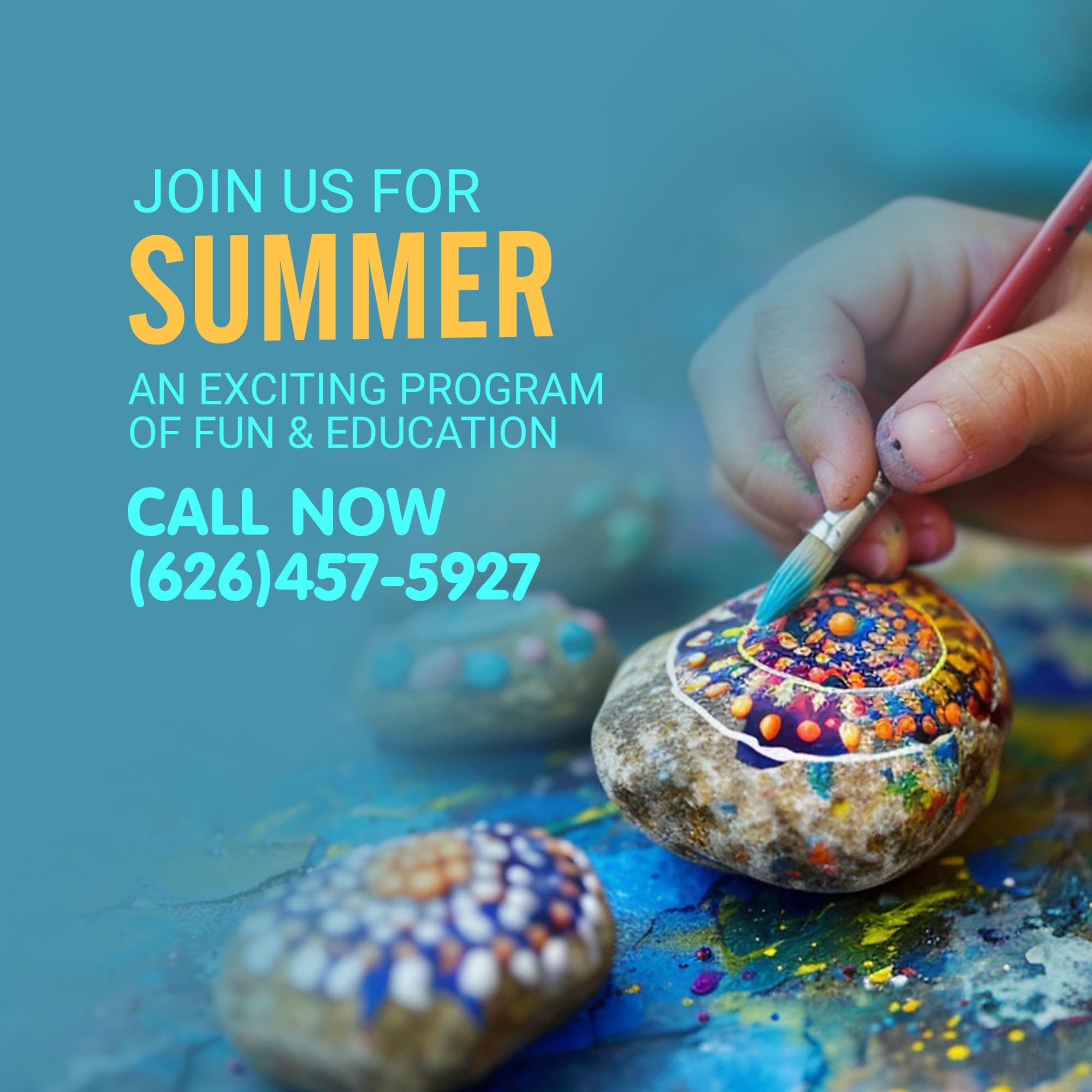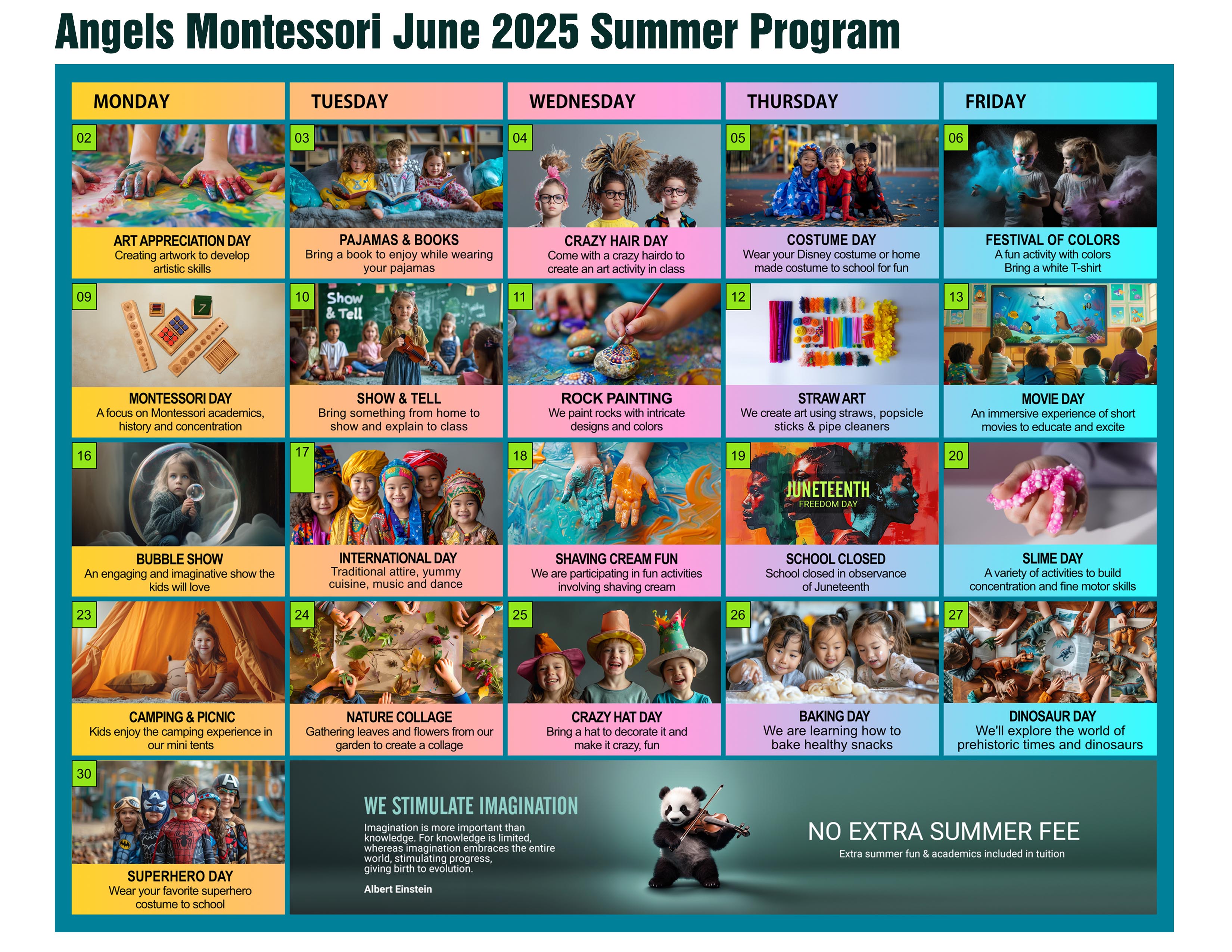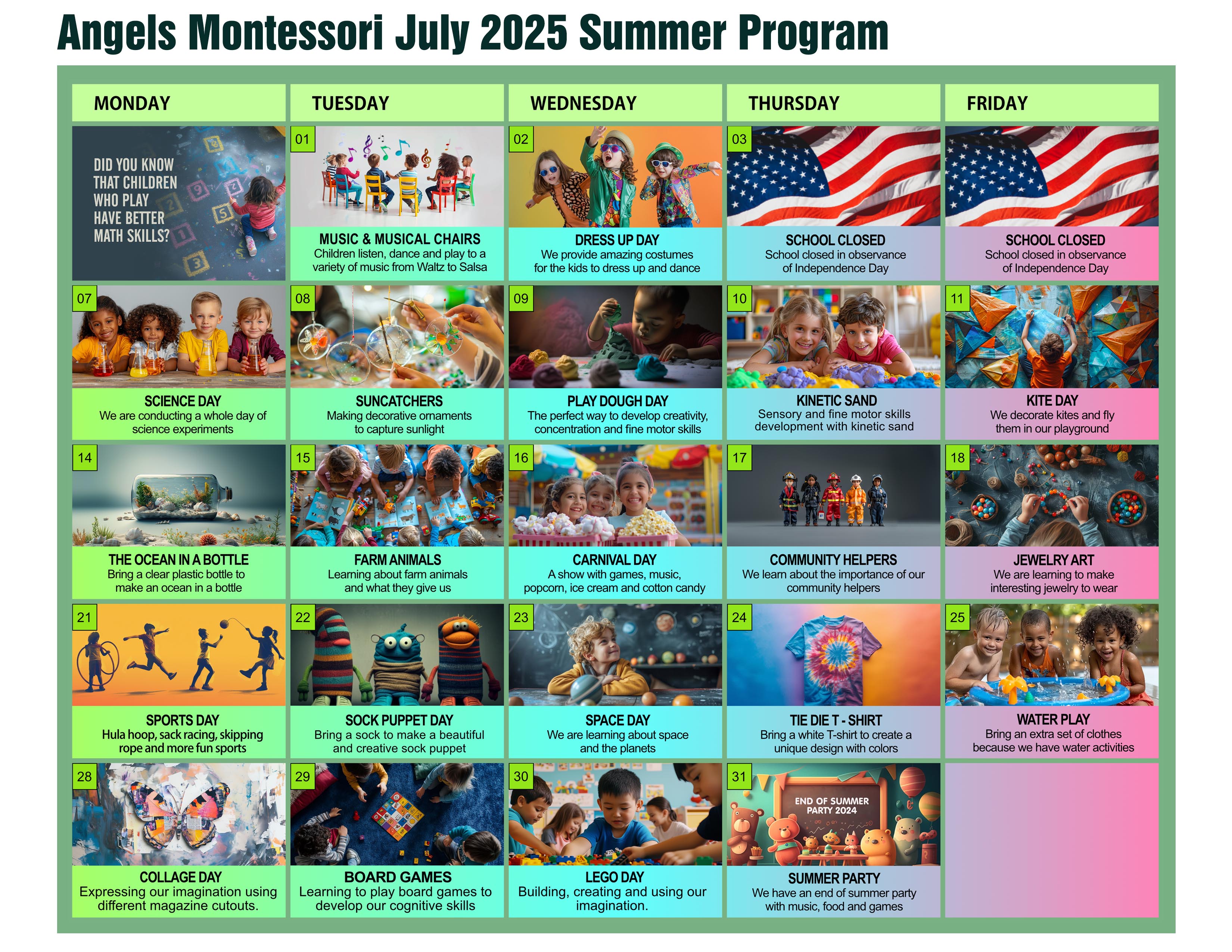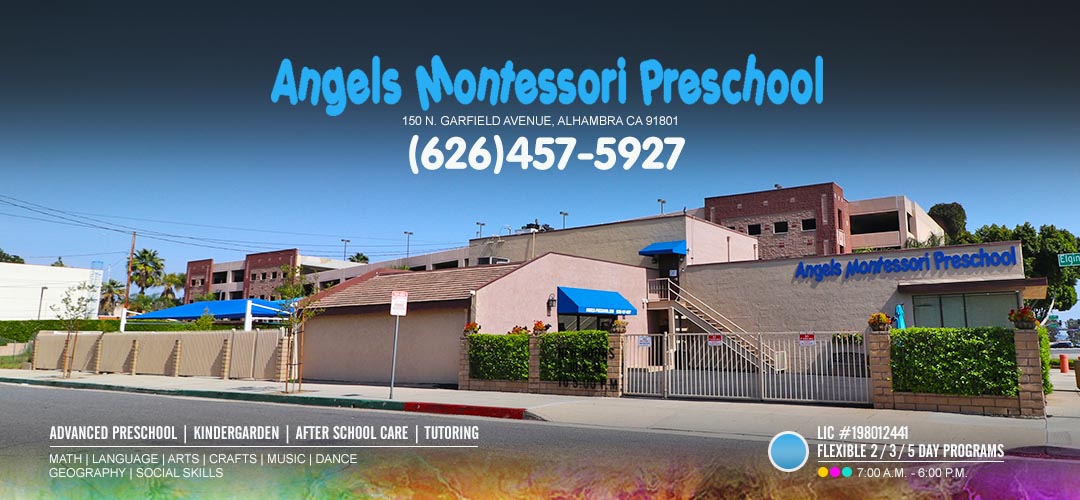SUMMER PROGRAM

The Angels Montessori Summer program is an educational and fun-filled program designed for young children aged 2-6 years old. The program is held during the summer months of June and July and provides children with a variety of activities to keep them engaged and entertained.
However, our academic program still continues at a reduced scale alongside the recreational activities to ensure that the children's academic skills stay sharp. After all, we cannot have fun and games all day, can we?. And this ensures all the fun and games translates into immediate academic benefits.
The program is rich in features, offering a range of activities such as science experiments, projects, music, art, sports, and many others. Science experiments are a great way to introduce children to the world of science and help them understand basic concepts. Projects allow children to explore their creativity and develop their problem-solving skills.
Music and art activities provide opportunities for children to express themselves and develop their fine motor skills. Sports and other physical activities help to improve children's coordination, balance, and overall health.
The program offers a safe and nurturing environment for children to socialize with their peers, develop their social skills, and build friendships. With its combination of educational and recreational activities, this preschool summer program is the perfect way for young children to spend their summer days and great start to the formal school year that starts in September.
As an added bonus, there are no addtional summer fees for our summer program. The school funds all the extra programs and entertainers. All you pay is the regular tuition.
For new parents who are looking to enroll their child in school, this program is an excellent way to provide a soft start and guarantee a spot.
- No extra summer fees. Only regular tuition.
- Creative summer program
- Regular academics part of the program
- Social skills development
- Builds physical strength
- Teaches new skills
- Exposure to new ideas and subjects


ROLE OF PLAY IN EARLY CHILDHOOD EDUCATION
The importance of play in early childhood education cannot be overstated. Play is a natural and essential part of a child’s development, serving as a powerful tool for learning and growth.
-
Development of Cognitive Skills: Through play, children are able to develop important cognitive skills such as problem solving, critical thinking, and creativity. This helps them to build a strong foundation for future learning.
-
Social and Emotional Development: Play also plays a crucial role in children’s social and emotional development. Children learn to interact with others, share, take turns, and resolve conflicts through play, all of which are important skills for future success in school and beyond.
-
Physical Development: Play also helps children develop their physical abilities, such as coordination, balance, and dexterity. Through physical play, children can improve their gross motor skills and build their confidence in their own abilities.
-
Language Development: Play provides an opportunity for children to practice and develop their language skills. Children can learn new words and expand their vocabulary by playing with others and exploring their environment.
-
Creativity and Imagination: Play allows children to use their imagination and creativity to explore new ideas, concepts and worlds. This helps to foster a lifelong love of learning and creativity.
-
Academic Skills: Play can also support the development of early academic skills such as counting, sorting, and pattern recognition. Children learn through hands-on, experiential activities, which makes these skills easier to understand and retain.
-
Flexibility: Play allows children to experiment, take risks, and make mistakes in a safe and supportive environment. This helps them to develop a sense of flexibility and resilience, important skills for navigating the challenges of school and life.
- Social skills Developments: Play provides a natural and enjoyable way for children to bond with their peers. This helps to create positive relationships and a sense of community, which is essential for success in school and life.
- Teacher-Child Relationships: Play also provides an opportunity for teachers to build positive relationships with their students. By engaging in play with children, teachers can learn more about their individual needs and interests, and provide targeted support to help them succeed.
-
Inclusiveness: Play is an inclusive activity that allows children of all abilities and backgrounds to participate. This helps to create a welcoming and supportive environment for all children, fostering a sense of belonging and community.




